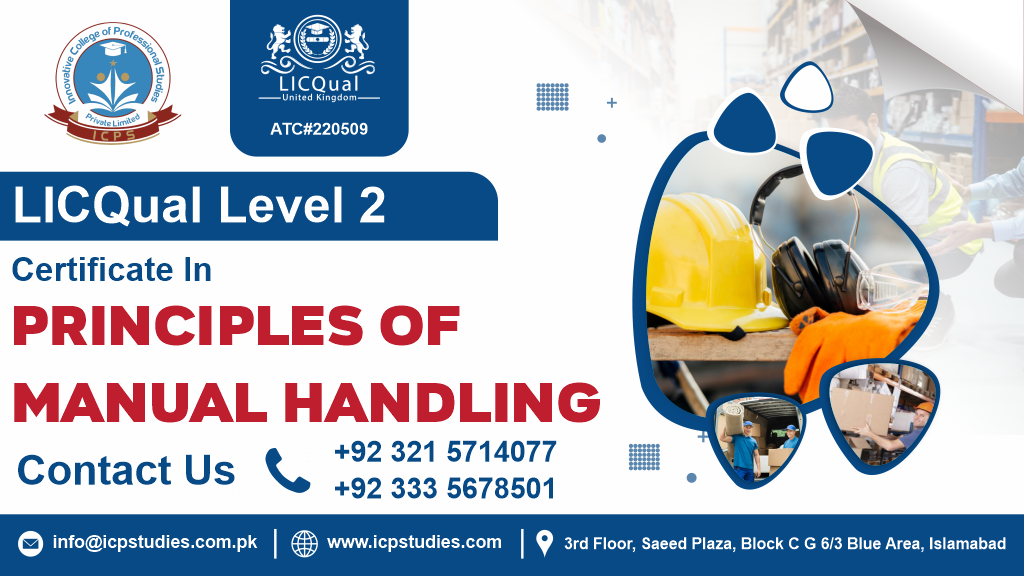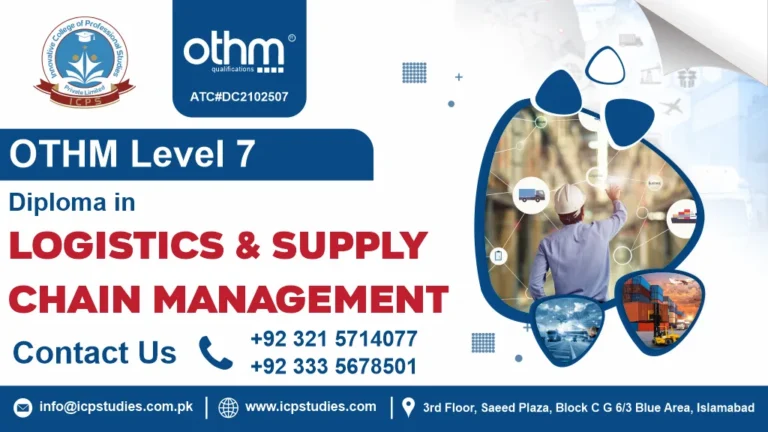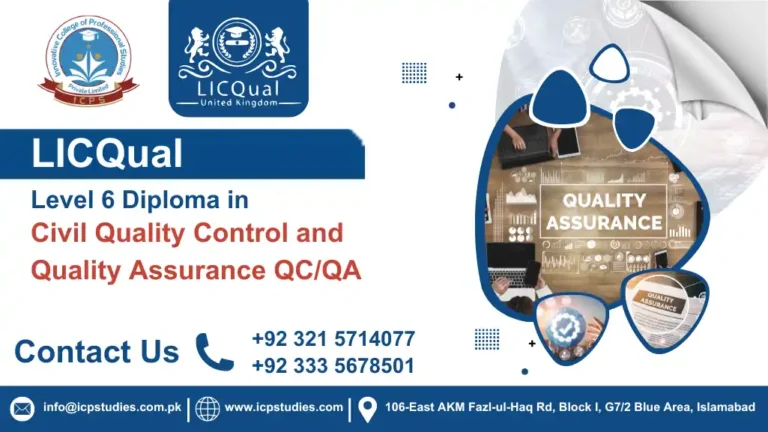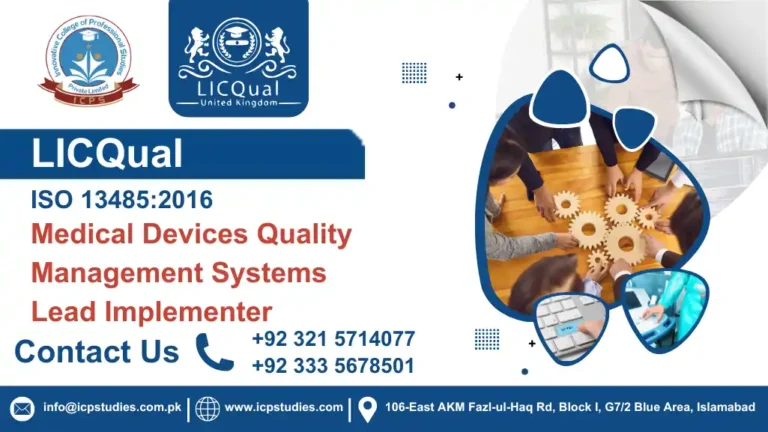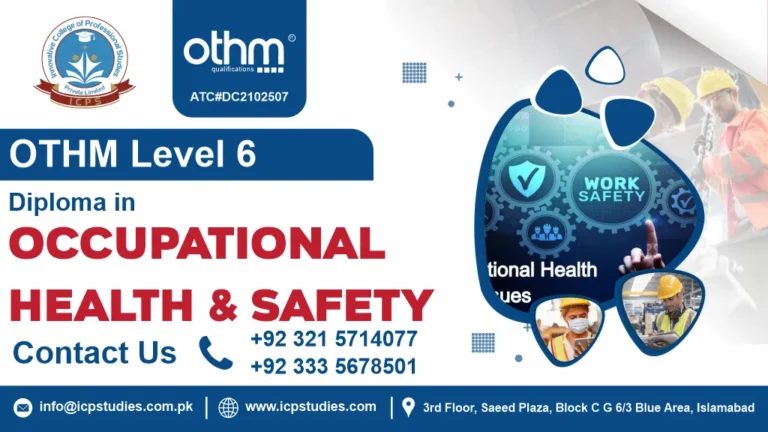In today’s dynamic work environments, ensuring the safety and well-being of employees is paramount. From warehouses to offices, healthcare facilities to construction sites, manual handling tasks are integral to countless industries. However, without proper training and awareness, these tasks can pose significant risks to workers’ health and safety.
Our program delves deep into the principles of manual handling, covering essential topics such as risk assessment, ergonomic principles, safe lifting techniques, and the importance of correct posture. With a focus on practical application, learners gain actionable insights that can be immediately implemented in their day-to-day work.
LICQual is synonymous with quality and credibility in vocational education. Our Level 2 Certificate is accredited by leading industry bodies, ensuring that your certification is recognized and respected by employers across various sectors.
We understand that every workplace is unique. That’s why our training can be customized to meet the specific needs of your organization. Whether you operate in manufacturing, hospitality, healthcare, or any other industry, our flexible approach ensures that the training is relevant and impactful.
Learn from seasoned professionals who bring a wealth of experience to the table. Our instructors are experts in their field, passionate about sharing their knowledge and ensuring that every participant gains the skills they need to stay safe on the job.
Investing in the LICQual Level 2 Certificate in Principles of Manual Handling isn’t just about ticking boxes – it’s about prioritizing the safety and well-being of your most valuable asset: your workforce. Empower your team with the knowledge and skills they need to handle manual tasks safely and efficiently. Enroll now to learn more about how LICQual can transform your workplace safety culture.
All About LICQual Level 2 Certificate in Principles of Manual Handling
Course Overview
The LICQual Level 2 Certificate in Principles of Manual Handling is a professional certification program designed to provide participants with comprehensive training in the principles and practices of safe manual handling. Developed by LICQual Limited, a leading provider of vocational qualifications, this certificate equips individuals with the knowledge and skills necessary to perform manual handling tasks safely and effectively in various workplace settings.
The program covers essential topics related to manual handling, including risk assessment, ergonomic principles, safe lifting techniques, and the importance of correct posture. Participants gain a thorough understanding of the factors that contribute to safe manual handling practices.
Emphasis is placed on the practical application of learned principles. Participants engage in hands-on training sessions to develop proficiency in lifting, carrying, pushing, and pulling loads using safe techniques. Practical exercises help reinforce learning and enhance retention of key concepts.
The certificate is accredited by recognized industry bodies, ensuring that it meets high standards of quality and credibility. Employers can trust that individuals holding this certification have undergone rigorous training and possess the necessary skills to contribute to a safe working environment.
Overall, the LICQual Level 2 Certificate in Principles of Manual Handling is designed to empower individuals with the knowledge, skills, and confidence to handle manual tasks safely, reduce the risk of injuries, and contribute to a safer and healthier work environment. It serves as a testament to an individual’s commitment to workplace safety and can enhance their employability and career prospects in various industries.
Study Units
Learning Outcomes
Here are the expected outcomes for each of the study units:
- Introduction to Manual Handling:
- Understand the concept of manual handling and its relevance in the workplace.
- Identify common manual handling tasks and associated risks.
- Recognize the importance of safe manual handling practices for preventing injuries and promoting workplace safety.
- Risk Assessment and Control Measures:
- Develop proficiency in conducting risk assessments related to manual handling tasks.
- Identify potential hazards and assess the level of risk associated with manual handling activities.
- Learn how to implement control measures to mitigate identified risks and create a safer working environment.
- Safe Manual Handling Techniques:
- Acquire practical skills in performing manual handling tasks safely and efficiently.
- Learn proper lifting techniques, including lifting, carrying, pushing, and pulling, to minimize the risk of injury.
- Understand the importance of maintaining correct posture, using mechanical aids, and reducing repetitive strain during manual handling activities.
- Teamwork and Communication:
- Develop effective communication skills necessary for teamwork during manual handling tasks.
- Learn how to collaborate with team members to ensure the safe and efficient handling of loads.
- Understand the importance of clear communication, feedback, and support in preventing accidents and injuries in the workplace.
- Health and Safety Legislation:
- Gain knowledge of relevant health and safety legislation, regulations, and guidelines related to manual handling.
- Understand the legal responsibilities of employers and employees regarding manual handling safety.
- Learn how to interpret and apply health and safety legislation to ensure compliance and promote a culture of safety in the workplace.
By completing these study units, participants will be equipped with the knowledge, skills, and confidence to handle manual tasks safely, assess and mitigate risks, communicate effectively with team members, and ensure compliance with health and safety legislation. This comprehensive training empowers individuals to contribute to a safer and healthier work environment while reducing the risk of injuries and accidents associated with manual handling activities.
Admission Criteria
Entry requirements for the course on Manual Handling typically encompass several factors to ensure participants can effectively engage with the content and benefit from the training. Here’s a breakdown of potential entry requirements:
- Minimum Age: Participants may need to be a certain age to enroll in the course, usually 16 years or older. This ensures that individuals have the maturity to understand the course materials and actively participate in training activities.
- Language Proficiency: Proficiency in the language of instruction is essential to comprehend course materials, instructions, and assessments. Participants may need to demonstrate a basic level of language proficiency through a language proficiency test or equivalent.
- Health and Fitness: Manual handling tasks can be physically demanding. Participants should have a reasonable level of fitness and physical capability to engage in practical training activities safely. Individuals with pre-existing medical conditions or disabilities should consult with the training provider to assess their suitability for the course.
- Educational Background: While there may not be specific educational prerequisites for this course, a basic level of literacy and numeracy skills may be required to understand course materials and complete assessments effectively.
- Occupational Requirements: Depending on the industry or workplace context, participants may need to meet certain occupational requirements or hold relevant positions that involve manual handling tasks. This ensures that individuals undertaking the course have a practical understanding of manual handling practices relevant to their work environment.
- Pre-Course Assessment: Some training providers may conduct a pre-course assessment to evaluate participants’ readiness for the training program. This assessment may cover basic knowledge of manual handling principles or physical capabilities relevant to the course.
- Legal Requirements: Compliance with local health and safety regulations may also influence entry requirements for the course. Participants may need to provide proof of eligibility to work or undergo background checks as required by regulatory authorities.
It’s essential for prospective participants to check with the specific training provider offering the Manual Handling course for the most accurate and up-to-date information regarding entry requirements. These requirements ensure that participants can fully engage with the course material and contribute effectively to a safe working environment.
Ideal Candidate
The Manual Handling course is designed for individuals across various industries who are involved in tasks that require manual handling of objects or materials. This course caters to a wide range of participants, including:
- Frontline Workers: Employees who regularly lift, carry, push, or pull objects as part of their job duties. This includes individuals working in sectors such as manufacturing, construction, warehousing, retail, hospitality, healthcare, and agriculture.
- Supervisors and Managers: Those responsible for overseeing workplace safety and ensuring that manual handling tasks are performed correctly. Supervisors and managers play a crucial role in implementing safe manual handling practices and providing guidance to their teams.
- Health and Safety Professionals: Professionals working in occupational health and safety roles who require specialized training in manual handling principles and practices. This course equips them with the knowledge and skills necessary to assess risks, develop policies, and implement control measures related to manual handling.
- Trainers and Instructors: Individuals involved in delivering manual handling training within their organizations or as external trainers. This course provides them with the necessary expertise to design and deliver effective training programs that promote safe manual handling practices.
- New Entrants to the Workforce: Individuals who are new to the workforce or transitioning into roles that involve manual handling tasks. This course serves as foundational training, helping them understand the principles of safe manual handling and develop essential skills for their roles.
- Career Advancers: Professionals seeking to advance their careers in industries where manual handling skills are essential. Obtaining certification in manual handling principles demonstrates their commitment to workplace safety and enhances their prospects for career growth and advancement.
Overall, the Manual Handling course is suitable for anyone who wants to learn how to perform manual handling tasks safely and efficiently, minimize the risk of injuries, and contribute to a safer working environment. Whether you’re an employee, a supervisor, a health and safety professional, or someone new to the workforce, this course provides valuable knowledge and skills that are applicable across various industries and job roles.
FAQs about LICQual Level 2 Certificate in Principles of Manual Handling

